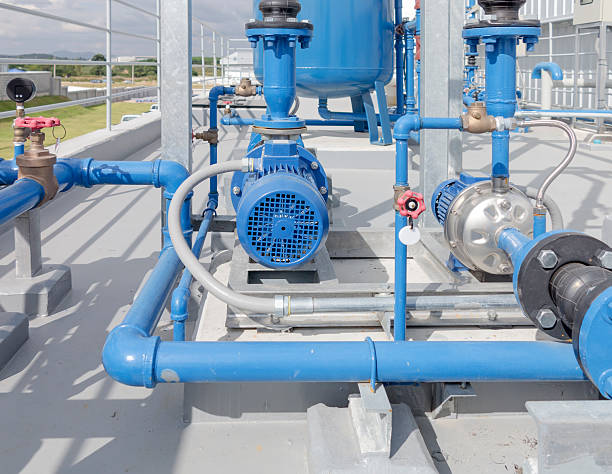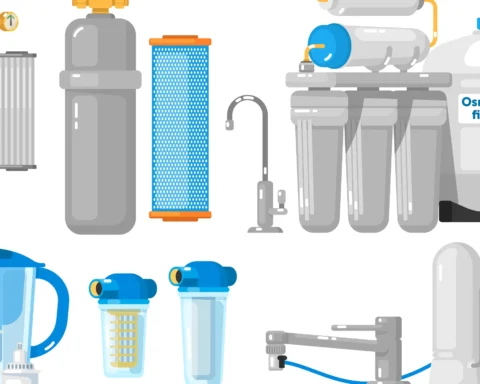Introduction to Modern Water Pump Technologies
In today’s rapidly developing world, efficient water management is paramount. This is where modern water pump technologies step in, offering advanced solutions to meet increasing water demands sustainably. These technologies provide essential support in distributing water efficiently, whether for industrial, agricultural, or domestic use. As populations grow and urbanize, the demand for water increases exponentially, making it crucial to adopt systems that supply water effectively and sustainably. Modern pumps enhance this ability by reducing energy costs and optimizing resource utilization, essential factors for cities looking to evolve into intelligent, sustainable hubs.
Water management is at the forefront of sustainable practices, impacting everything from agriculture to urban development. Efficient water pump technologies enable municipalities to manage water resources better, ensuring supply meets demand while minimizing waste. The efficiency and precision that modern pumps bring to the table reflect an ongoing commitment to adopting practices that preserve precious resources for future generations. Platforms like Cbeuptime.com are critical in tracking and understanding these innovations, ensuring industries stay ahead regarding water management techniques.
Sustainability and Water Pump Technologies
Integrating sustainable practices in water management is a global priority, with modern pump technologies at the heart of these efforts. By significantly reducing energy consumption, these technologies help mitigate the carbon footprint associated with water distribution. Advanced pumps utilize cutting-edge materials and designs to minimize energy loss, contributing to sustainability goals.
Implementing such technologies reveals a commitment to environmental conservation, enhancing operational efficiency while supporting global sustainability targets. A significant advancement in energy optimization is that modern pumps work more precisely and use less energy to do the same tasks as older types. By lowering operational costs and environmental impact, these pumps provide a win-win scenario for industries seeking to effectively balance economic and ecological responsibilities.
The Evolution of Water Pumping Solutions
Water pumping solutions have evolved from simple, manual systems to sophisticated, automated technologies. Historically, pumps were powered by human or animal power, limiting output and efficiency. Electrically driven pumps were created due to material and technical advancements in the 19th and early 20th centuries, which increased capacity and dependability. Digital technologies have allowed for more precise control and monitoring of pumps, enhancing system performance and promoting sustainable water usage practices, crucial for addressing environmental challenges.
Innovative Features and Techniques
Today’s water pumps have various innovative features that enhance efficiency and functionality. Variable speed drives are particularly noteworthy, allowing pumps to adjust their operation to match precise needs without wasting energy. This flexibility results in significant energy savings as pumps no longer need to operate at total capacity when it’s not necessary.
Additionally, remote monitoring capabilities enable real-time data collection on pump performance, facilitating timely maintenance and reducing downtime, which translates to cost savings. These capabilities represent a shift towards intelligent systems that adapt dynamically to operational requirements, embodying the principles of innovative technology integration. By analyzing the real-time data collected from various installations worldwide, manufacturers can optimize pump designs and performance, ensuring that they remain responsive to changing industrial demands and environmental conditions.
Applications in Various Industries
The versatility of modern water pump technologies allows for their application in a diverse range of industries. In agriculture, pumps are integral to optimized irrigation systems, ensuring that crops receive the necessary water without excess, conserving resources, and promoting sustainable farming practices. In manufacturing, pumps are indispensable for transporting fluids and chemicals and maintaining the precise conditions required for diverse industrial processes.
Pumps are vital to urban infrastructure’s water supply and wastewater management systems. Their effectiveness in these applications directly impacts public health and the environment by ensuring that water quality and availability are maintained at high standards. This cross-industry applicability underscores the essential role that advanced water pumping systems play in modern society’s quest for sustainability and operational excellence.
Keep an eye for more latest news & updates on Essential Tribune!








